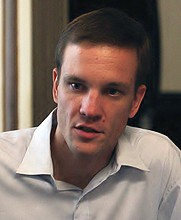12 March 2025
Philippe Buc (Leiden), Lyndal Roper (Oxford), Violet Soen (Leuven) and Pavel Soukup (Prague) are the plenary speakers of our upcoming #REFORC2025 conference at CEU in Vienna.

The plenary speakers will present papers on the topic of Religion and Rebellion in Early Modern Christianity:

Philippe Buc: Ikkō ikki Violence in the Prism of Western Europe
Comparisons between the so-called new Buddhisms of Medieval Japan and the Reformation are an old staple in scholarship. They have been rightfully criticized. Still, all forms of comparison may not be methodologically illegitimate, or fruitless. One of the sects originating in Japan’s thirteenth century, in particular its relationship to armed violence and to the functional equivalent of the European notion of “the world” can be juxtaposed to, and made more understandable thanks to, Late Medieval and Early Modern “Western” configurations. This talk will present and explore comparatively the ikkō ikki movement, militant provincial coalitions of small warriors, peasants, and itinerants, which in the course of the sixteenth century morphed into a school, jōdoshin-shū (True Pureland Buddhism).

Lyndal Roper: Turbulence and the German Peasants’ War of 1524-6
The German Peasants’ War was the greatest peasant uprising in Western Europe before the French Revolution. It happened at the height of Luther’s German Reformation. A traumatic event, perhaps a hundred thousand peasants died.
Contemporaries almost universally referred to the War as the ‘Aufruhr’, the turbulence. In his infamous condemnation of the Peasants, Luther used the word six times in the key paragraph. Aufruhr must be punished, he wrote, and those involved ‘slain like mad dogs’. This lecture examines movement patterns in the war to understand why contemporaries experienced the war as ‘turbulence’, exploring where, when and how peasants formed bands. It concludes with a discussion of the artist Albrecht Dürer’s Dream of 1525.

Violet Soen: Between a Pacification and a Religious Peace Resistance, Reconciliation and Peace Making at a Crucial Juncture of the Dutch Revolt (1576-1578)
The sixteenth-century Revolt in the Low Countries hinged upon a rebellion against the landlord, Philip II, also King of Castile and Aragón. Reasons for rebellion were manifold, and political reform measures, social aspirations and religious reform moulded into an explosive cycle of violence, which in the 1576-1577 seemed out of control. At that time, the pleas for peace originated in the same circles where those for resistance and rebellion had originated. This project will specifically examine the right of resistance and the duty of reconciliation in three peace projects during that troublesome period: the Pacification of Ghent of November 1576, promulgated by the States-General, the Eternal Edict of Marche-en-Famenne of February 1577, endorsed by the new Habsburg Governor-General Don Juan de Austria, and the lesser-known Religionsvrede from July 1578, propagated by elites in the States-General, including William of Orange and Archduke Matthias of Austria. Comparing the solutions to engineer peace and new political regimes, this project will make clear how the reformation served as a touchstone for both resistance, reconciliation and peacemaking in the Dutch Revolt.

Pavel Soukup: The Hopes and Restraints of Religious Rebellion: A View from Hussite Bohemia
Hussitism has been regarded by some historians as the last heretical movement of the Middle Ages, by others as part of the First Reformation. Such classifications depend crucially on how one judges the success of the Hussite revolt: did the Bohemian and Moravian rebels at least partially achieve their reformist goals, or did they end in resignation? The periodic re-actualisation of core religio-political demands by factions on the fringes of the movement may indicate a weakening of reformist momentum in the Hussite mainstream. However, such a vision hardly does justice to the historical importance of the protagonists of the Utraquist establishment, who ultimately ensured the survival of Hussitism as a practically independent confession. This lecture will attempt to capture the significance of the multifaceted radical Hussite groups against the backdrop of the conceptual debates surrounding the radical Reformation, including the Peasants’ War. Attention will be given to the means of communication through which Hussite ideologists were able to attract their following. Hostility to the Hussite version of religious and social reform will be identified as a key factor, for it was only the rejection by existing power structures that made a religious movement rebellious. The efficacy of anti-Hussite measures will also be examined, along with the contribution of anti-heretical policies to the outcome of the Hussite religious rebellion.